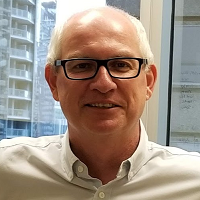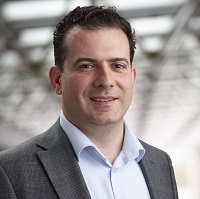What is Quantum Computing?
Quantum computing utilizes quantum mechanics to process information. Conventional computers operate with bits: binary pieces of information encoded as either a “one” or a “zero.”
For example, the words “health care” can be represented by the following string of bits: 01101000 01100101 01100001 01101100 01110100 01101000 00100000 01100011 01100001 01110010 01100101.
Quantum computers encode bits of information in quantum systems known as “qubits.” One of the fascinating aspects of qubits is their ability to embody multiple states simultaneously — this is called “superposition.” Thus, a qubit is not constrained to encoding just a “one” or a “zero” but can embody a wide range of combinations of “one” and “zero”. For example, hydrogen nuclei can be oriented “up” (encoding a “one”) or “down” (encoding a “zero”) as well as a spectrum of orientations in between.
Quantum Benefits
The rich complexity intrinsic to these quantum states enables computations that would be infeasible to achieve with conventional computers, bringing certain previously impossible tasks into reach. Advancements in the areas of drug design, in silico trials (virtually testing new medications and medical devices) and in sequencing and analyzing DNA at unprecedented speed are some examples of the potential benefits of quantum computing.
Quantum and Encryption
While there are many exciting future applications for this kind of computational capability, it also has repercussions for existing encryption and data security standards. To date, the Canadian health system has been diligent on specifications related to data residency, securing data at rest, and encrypting data in transit.
Decrypting that data is beyond the capability of conventional computers, but not quantum computers. Currently, there are only a few small prototype quantum computers in existence, with many experts anticipating a tipping point in quantum computers’ ability to break widely-used cryptographic approaches within the next 10 to 20 years. Other experts anticipate this tipping point happening within the next five to 10 years. This means that information captured today and decrypted in the future could pose a future privacy risk.
Planning for the Future
Quantum computing offers considerable potential for health care. But to optimize its benefits, we need to prepare. There are several potential approaches under consideration to protect patient data. These include implementing new quantum safe algorithms for encryption and, alternatively, more highly secure quantum key distribution mechanisms for managing network communication.
Approaches to address these challenges are in the early stages of being developed and Canada has the opportunity to lead the way in building a quantum safe health care environment. Now is the time to understand, invest in and plan for a quantum future.
Have a comment about this post? We’d love to hear from you.



